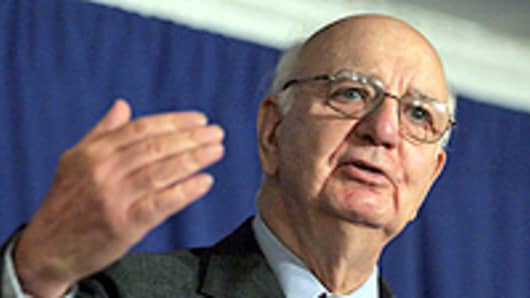That includes any bank or credit union that is federally insured and accepts deposits, as well as traditional banks and investment firms like Goldman Sachsand Morgan Stanley —which are now bank holding companies.
The rule was proposed by Volcker as part of the the Dodd–Frank reform bill of 2010. Volcker was then the Chairman of the Economic Recovery Advisory Board under President Barack Obama, a post he left in January 2011.
Volcker partly blamed the speculative investing by banks for helping create the financial crisis of 2007-2010. He felt the type of investing the banks were doing resulted in putting customers at great risk for financial losses through the trading.
To be specific, the rule prohibits banks from engaging in short-term trading of any security, derivatives and certain other financial instruments from a bank's own funds. And it prohibits owning, sponsoring, or having certain relationships with a hedge fund or private equity fund.
The rule would require banks to create some sort of internal compliance program for making trades. Banks with major trading operations would have to report to federal agencies.
The Volcker Rule does allow some trading when it's necessary for the bank to run its business. For example, banks can engage in currency trading to offset their own holdings in a foreign currency.
Banks made huge profits in the years leading up to the financial crisis on the type of trading the Volcker rule would stop—more than $15 billion by some estimates.
President Obama has come out in favor of the rule, as have many consumer groups.
What do critics say about the rule?
Banks say the rule would hurt their profits and cost banks additional money in attempting to comply with all of the rule’s details. Traders say their bonuses would be cut, as they would no longer be able to make commissions on certain trades.
The rule is also subject to many exemptions for trading, which some Volcker Rule supporters say are not stringent enough and banks say are too complex.
Is the Volcker Rule in place?
Not yet. The rule is still being worked on. The Treasury Department, Federal Reserve, Federal Deposit Insurance Corporation and Securities Exchange Commission did release a version of the rule on Oct. 11, 2011. It is 298 pages long.
Under the Dodd-Frank financial reform bill—which was signed into law in 2010—the final version of the Volcker rule will go into effect on July 21, 2012.
Regulators have signaled they are unlikely to produce a final Volcker rule by the July 21 deadline. But under Dodd-Frank the Volcker rule take effect regardless of whether regulators have the details settled.
Update: The Federal Reserve issued a ruling on April 19 2012, stating that banks would have two years to bring their activities in line with the Volcker rule, before regulations would be enforced.


